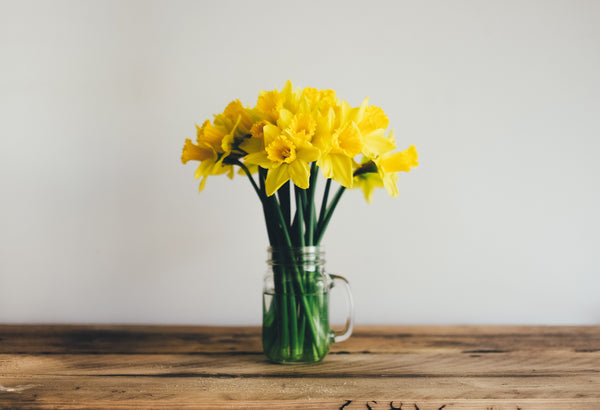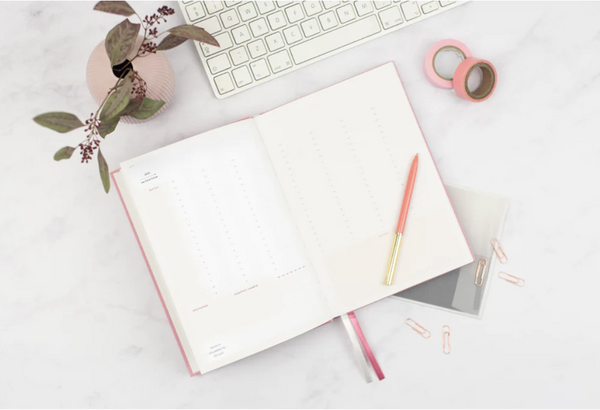Making lifestyle changes that last is a goal that many people strive for. We want to eat better, be more productive, create a financial nest egg, live more frugally, and on and on. We create all of these goals with good intentions, but the execution falters somewhere along the way and those goals remain distant dreams that we chalk up as failures.

It’s possible to create change in your life and to stick to a new way of doing things, but it takes some mindful planning, as well as a shift in perspective about how you approach these sustainable lifestyle changes. Let’s take a look at some strategies of sustainable planning for lifestyle changes that last.
Making lifestyle changes that last is a goal that many people strive for. We want to eat better, be more productive, create a financial nest egg, live more frugally, and on and on. We create all of these goals with good intentions, but the execution falters somewhere along the way and those goals remain distant dreams that we chalk up as failures. It’s possible to create change in your life and to stick to a new way of doing things, but it takes some mindful planning, as well as a shift in perspective about how you approach these sustainable lifestyle changes. Let’s take a look at some strategies of sustainable planning for lifestyle changes that last.
Perspective
Instead of making resolutions, think of this growing experience as an evolution (link to the glass half full article). It’s easy to feel like you're failing when you have a bunch of goals that only focus on getting to point B from point A. The focus is on the achievement, “making it” to the next thing. Instead, focus more on the process, the baby steps, the journey to get there. When we focus on the journey instead of the destination, we might be surprised to see that there is some flexibility for a different (and better!) outcome that we hadn’t seen. Because we can’t see what will happen on that journey to our goal until we are on it.
Set progressive goals
This style of goal-setting isn’t new. Just like with certain financial planning goal programs, start with small, achievable goals. You can have big goals too, but if you want to save a million dollars over the next 5 years, you might struggle if that’s the only roadmap you have to go on. How are you going to get there? Is the path to getting there sustainable? How are you going to work towards that goal every day?
Get super specific
Once you’ve set your goals, it’s important that you break down those goals into actionable, measurable steps. If you want to write a novel, how are you going to get there? The book won’t materialize out of thin air so it’s important to write down every step for every day. Maybe you break it down into a monthly goal. I’ll write x number of chapters in one month. Then break it down into weekly goals. I’ll write x number of words this week. Then to daily goals. I’m going to write x number of words each day. But you can’t stop there. When do you plan to write (insert whatever your goal is here)? Maybe you write down that you will write for 3 uninterrupted hours every single morning. What if you miss a day? Plan out what you’ll do for missed days and how you will get back on track. Don’t double the work you have to do the next day to “make up for it” or you’ll get so overwhelmed that you quit. This could mean that you factor in “cheat” days where you don’t do your writing then. Want help keeping track of those goals? Invest in a planner! Setting due dates for those goals can help move the needle. View of our collection of planners here!
Take care of you. Yes, You.
To achieve our goals and create lifestyle changes that last, we have to take care of ourselves. We have to stay inspired, well-rested, and feeling good about our life and our work. It’s hard to get motivated when exhausted or burned out. What if one of your lifestyle changes is to take more time for yourself? If you are struggling with this, the first question to unearth is why. Why is it difficult for you to prioritize yourself? There are a myriad of reasons for this: kids, obligations, feeling unworthy, expenses depending on what you are wanting and needing. Want more about goal setting? Read this post!
Start with one thing at a time
You want to run a marathon, publish your novel, lose 50 pounds, eat only home cooked meals, or become a YouTube sensation. Whatever it is that you want to do, take one behavior change at a time. Sure, you can take steps towards achieving all of those things, but setting realistic goals with your daily/monthly/yearly planning is crucial. Part of writing things down is so you can see, in writing, preferably in your planner where you can see it every day, how your goals and your available time stacks up. Overbooking yourself is a fast trip down Burnout Lane. Start with those daily things. A first easy step could be to get a full night’s sleep and wake up at a set time each morning. During that first hour, maybe you make yourself a green juice, write for an hour, and move your body a little bit. Those are reasonable goals to set that will eventually lead towards your bigger goals if you want them to while also being sustainable.
Creating a sustainable plan for lifestyle changes that last is possible. It does require effort, intention, and follow through. The followthrough is often where we trip up, but it doesn’t have to defeat us or knock us completely off course. Scheduling downtime, taking things one step at a time, maybe even finding an accountability partner, are great ways to move towards creating new habits that stick. Our Printable library also has great resources to help optimize that downtime to make self-care a reality!

Writing things down every single day is also a wonderful way to foster awareness around how you are spending your time, and at the same time, keeping you focused on your goals which can easily slip off of your radar if they aren’t right in front of you, reminding you of the journey that you choose to be on.



